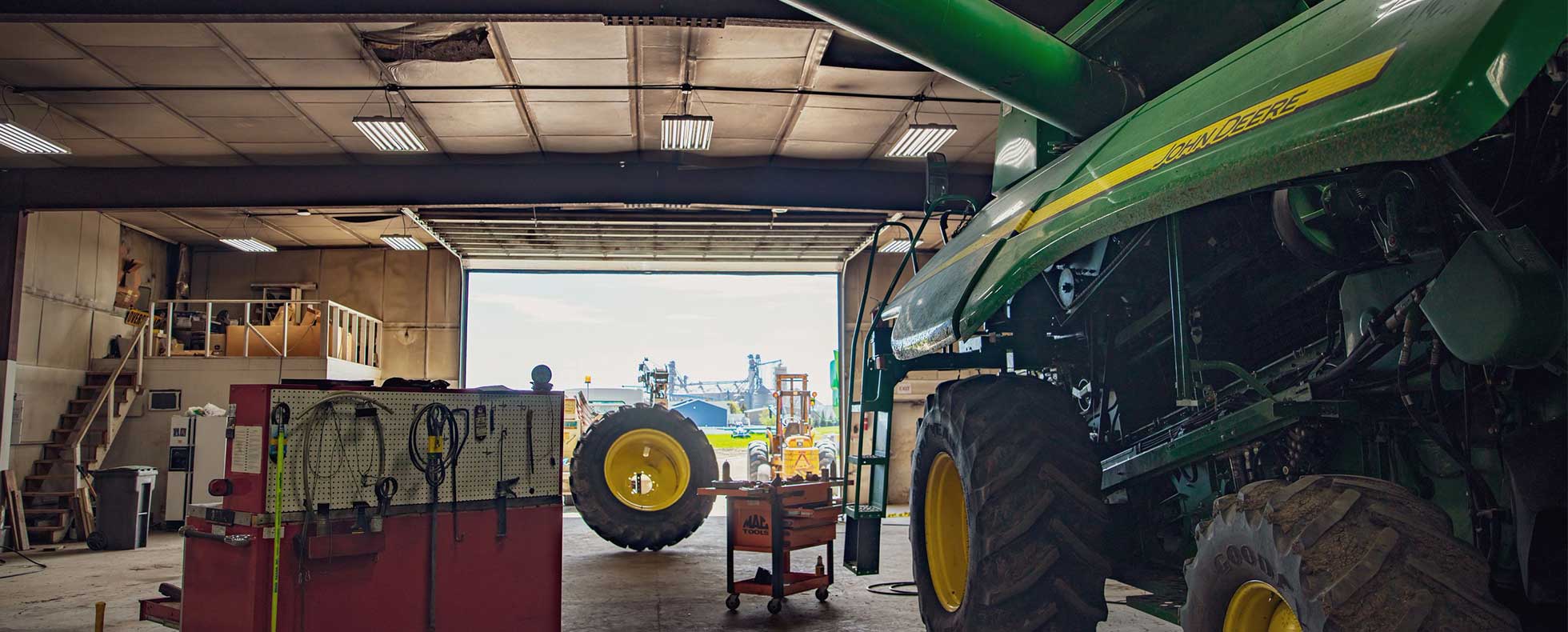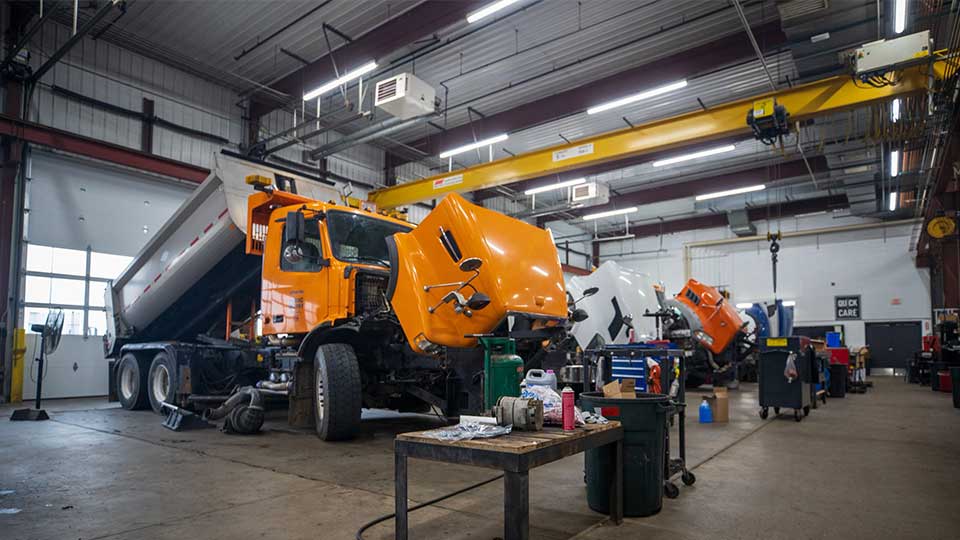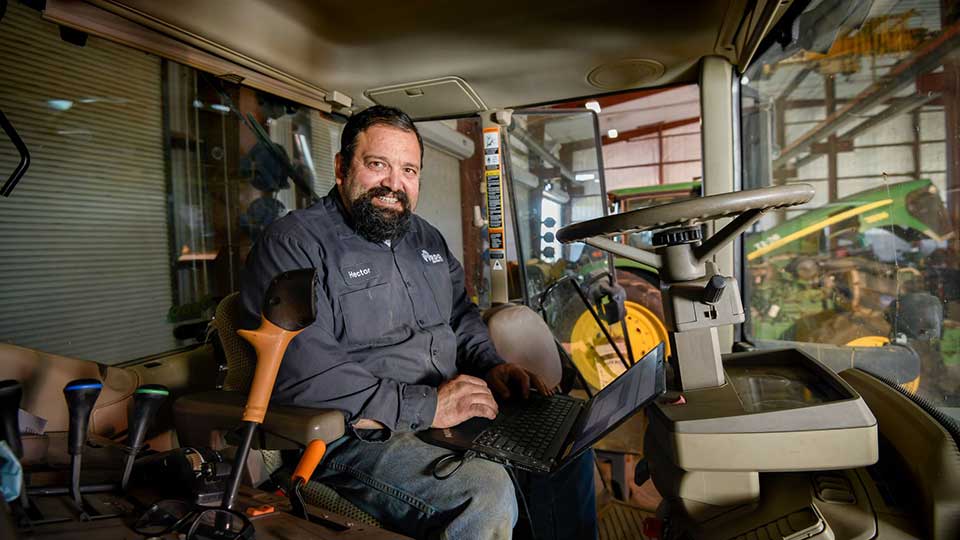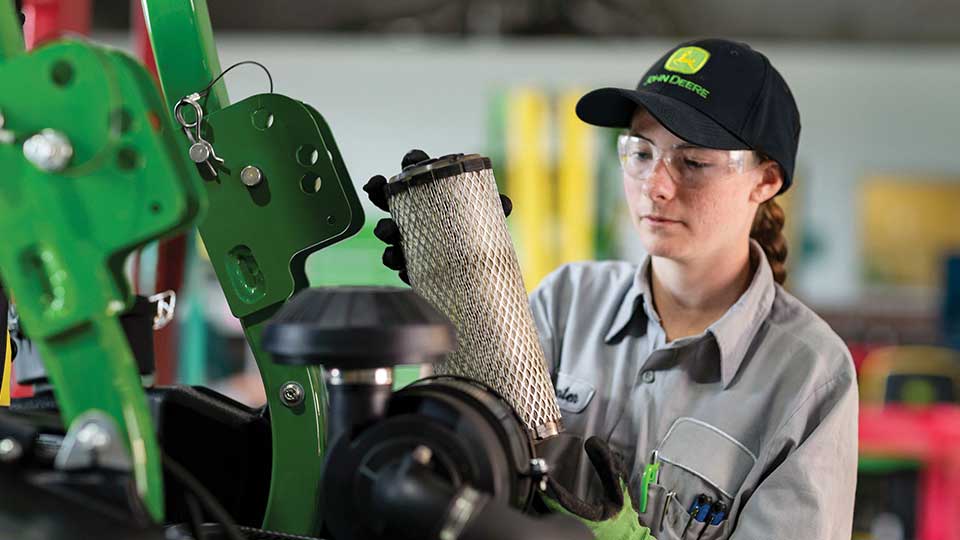
Interviewing for a new job can be stressful.
You want to put your best foot forward, but you’re unsure how to ensure a successful interview experience.
As a mechanic, it's important to have a job you enjoy at a company that values your work. RDO Equipment Co. is proud to employ more than 1,000 full-time service technicians. Over my more than 18 years with RDO, I’ve conducted more than 100 interviews with technicians. Some of them have gone really well, others have been more challenging.
Often, this comes down to the preparation a candidate does before they arrive.
Let’s make sure your interview — wherever it is — goes well.
In this article, I’ll give you eight tips for doing an excellent diesel mechanic interview so you can build a career you’re proud of at a company you love.
Before you apply for a new job, you should do some research on the company itself. This means going onto the company’s website, reading its “about” section (if it has one) and checking out its careers pages. This is probably the minimum amount of research you’ll want to do.
To really ace your interview, spend even more time getting to know your potential employer. Here are some things you can do:
The more you can do to research each company before you arrive, the better off you’ll be. In fact, you might even be asked what you know about the company. Showing you’ve done some research when this question is asked demonstrates your interest in the role and commitment to getting the job.

This tip is often overlooked. Putting your best foot forward as a potential team member means arriving on time for your interview. If you can avoid it, the last thing you want is to leave your interviewers waiting for you to arrive.
That’s why it’s a good idea to plan your route to the location of your interview the day before it’s supposed to happen. Decide when you’ll leave and look up how long it takes to get there. I’d recommend leaving a little bit earlier than your map says you should. That way you can budget for traffic and road closures.
At the end of your interview, or potentially throughout it, you will have the opportunity to ask questions of the people interviewing you.
This is a good time to learn more about the position, the company, the culture and the people you’ll be working with. Use it to your advantage.
Coming to an interview prepared with 3-5 questions is also a positive sign for your interviewers. Need help getting started? Here are 12 questions to ask.
Diesel mechanic job titles can be confusing. One company may call a job something entirely different than another. Having a good understanding of the role, including how much experience you’ll need, what you’ll be doing and what will be expected of you, is important.
You don’t want to accidentally apply for a job you’re not qualified for — a more senior position than you intended, for example.
Another reason this is important is that it will help you explain how your history/experience applies to the job at hand. Spend time reading through the job listing and highlighting sections where you have the necessary skills and others where you might need help.
When the time comes, outline your history and the areas where you’re qualified. It’s also helpful to explain the places where you might need a little bit more development.
Depending on what they are, these might not be a deal-breaker, but your hiring manager will want to make sure you get proper training in these areas.

As a technician, the list of questions you’re asked in an interview will likely change based on the seniority of the position you’re interviewing for. There are common questions most employers will ask though, and you should be ready to answer them.
These include questions around your own experience, questions about your tools, questions about your goals and questions about why you’re interested in the position.
Here’s a list of common diesel mechanic interview questions and tips for answering them.
For some of the more technical questions, it’s ok to say “I don’t know” when you don’t have an answer. Sometimes, this is better than answering incorrectly. I always prefer when the person I’m interviewing acknowledges their knowledge gaps instead of just guessing. Nobody knows everything, after all.
Come into every interview with a good understanding of what you need to make it work financially. While you should already know the pay range of the role you’re interviewing for, you might be asked about your salary/pay expectations.
If you are, make sure to tell them what you need in order to make the position work for you. This will help to make sure their pay aligns with your needs before you get too far along.
It’s always a good idea to bring a copy of your resume to your diesel technician interview. Before you do, make sure everything is up to date including your work history, your education history, your special skills and any certifications you have.
Give these to each of your interviewers so they can reference it during your meeting and after you leave.

My final tip here relates to your appearance. To the best of your ability, try to dress to impress in your interview. If you’re able, business casual is my general rule of thumb — you don’t need to wear a suit.
A polo or collared shirt and nice pants (chinos, jeans, dress pants) will do. Try not to wear anything with holes in it or grime on it. You only get one chance at a first impression, put your best foot forward by dressing professionally for your interview.
Your interview is a big step in getting the diesel mechanic job you want. The things you do before it can make or break your experience.
After your interview concludes, send a follow-up email to your point of contact at the company. In this email, thank them for the opportunity and express your interest in the job. This can go a long way toward getting you the job, and it's often overlooked.
Building a career you’re proud of as a mechanic is about more than just getting a great job, however. Here are six more tips for advancing your career.
RDO consistently hires service technicians throughout the U.S.
These team members make a real impact on our business, our customers and the communities they live in. Are you ready to join an organization dedicated to your success? Find out more about the service technician jobs at RDO.
If you have any questions, contact our careers team here.